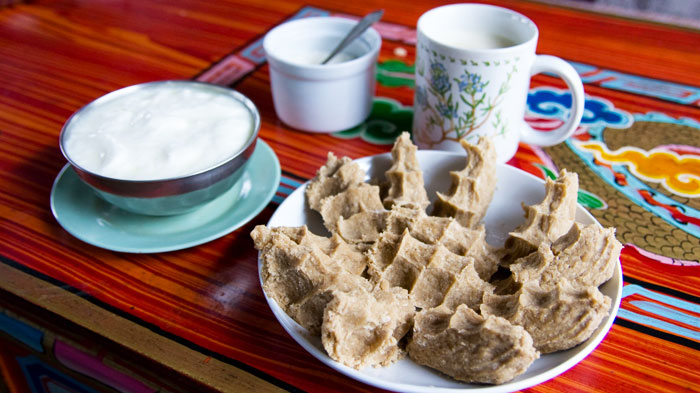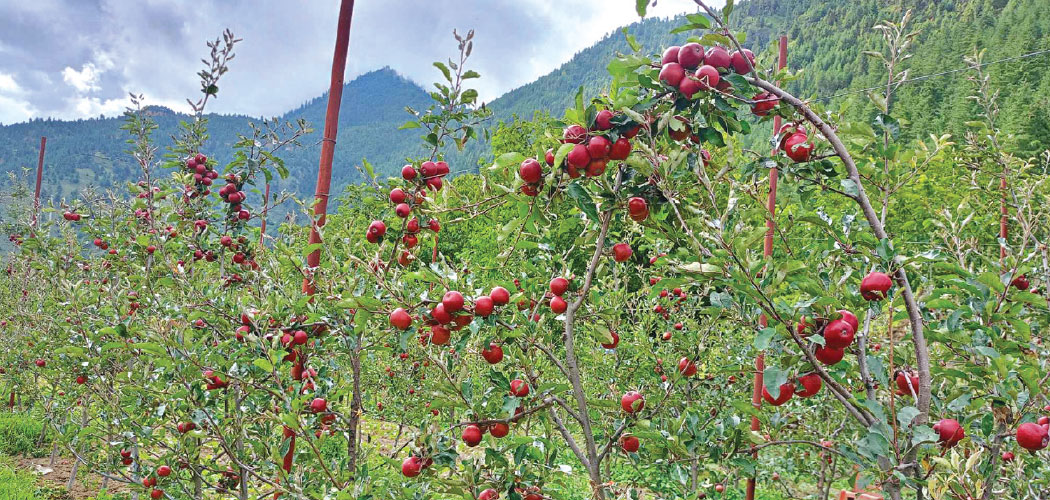Share this Article

In recent years, Nepal’s coffee culture has been slowly but steadily evolving, moving from local to global recognition. Known for its stunning Himalayan landscapes, rich culture, and diverse biodiversity, Nepal is increasingly gaining attention for another reason: its unique coffee offerings. What was once a niche market is now blossoming into an international trend, with more coffee lovers from around the world discovering the distinct flavors of Nepali coffee. But what is driving this surge, and how is Nepal making its mark on the global coffee scene?
1. A Unique Blend of Terroir
Nepal's coffee is unique because of the country's diverse climate and geography. Grown in the high altitudes of the Himalayas, Nepalese coffee beans are cultivated at elevations ranging from 1,000 to 2,000 meters. These high-altitude regions provide an ideal environment for the cultivation of Arabica coffee. The cool, misty weather and fertile volcanic soils contribute to the beans’ distinctive characteristics, with floral, fruity, and sometimes earthy notes that make them stand out from other coffee-growing regions.
The diversity in Nepal’s climate means that coffee beans grown in different parts of the country can vary significantly in flavor profile, making it an exciting destination for coffee enthusiasts looking for something new and different. The appeal of these rare and exotic beans has not gone unnoticed. International buyers are increasingly looking to add Nepali coffee to their rosters, appreciating the nuanced flavors that come from such a unique terroir.
2. The Role of Small-Scale Farmers and Cooperatives
A significant part of Nepal’s growing coffee industry is its emphasis on small-scale farmers and cooperatives. Most coffee in Nepal is grown by smallholder farmers, often in remote areas that have been underdeveloped in terms of market access. These farmers, many of whom have inherited traditional farming methods, are now incorporating modern techniques to improve the quality of their coffee beans.
Nepal’s coffee industry is organized largely around farmer cooperatives, which help these small farmers access training, support, and fair trade networks. The cooperative model has allowed Nepalese coffee to enter the international market with strong ethical credentials. With certifications like Fair Trade and Organic becoming increasingly important to consumers, these certifications make Nepali coffee appealing to a global audience.
Through these cooperative structures, farmers also benefit from better income distribution and improved quality control, allowing them to increase the quality and consistency of their beans. As the market for specialty coffee continues to grow, these cooperatives are helping to ensure that Nepal’s coffee industry remains both economically and environmentally sustainable.
3. Emerging Coffee Culture in Nepal
While Nepalese coffee may be a new discovery for international markets, it has become a growing part of local culture. Kathmandu, Nepal’s bustling capital, has seen a surge of specialty coffee shops in recent years. These cafes emphasize the quality and origin of the coffee they serve, giving consumers the opportunity to taste and appreciate local beans in various forms—from espresso-based drinks to pour-over and cold brew.
The younger generation, in particular, is playing a pivotal role in the evolution of coffee culture. They are embracing coffee as not just a beverage, but a lifestyle. Coffee shops in Nepal are more than just places to grab a quick caffeine fix—they are social hubs, artistic spaces, and locations for community events. Many of these cafes also emphasize local art, music, and culture, creating a fusion of coffee with the artistic and entrepreneurial spirit that’s gaining momentum in Nepal.
4. International Recognition and Exports
As Nepal’s coffee culture grows domestically, it is also starting to make waves on the international stage. The Nepali coffee industry’s commitment to high-quality beans, sustainable farming practices, and organic certification has attracted attention from global buyers and coffee roasters. In recent years, Nepal has participated in international coffee competitions and trade shows, which has resulted in greater visibility and recognition.
Nepal’s coffee exports have seen a steady rise, with major buyers from countries like the United States, Japan, and South Korea. Additionally, more and more international cafes and restaurants are starting to feature Nepali coffee on their menus, contributing to the rise in global demand.
The combination of Nepal’s distinctive flavors, ethical production methods, and high quality has made it an appealing source for coffee roasters around the world who are looking for something new and unique to offer their customers. As global interest continues to grow, Nepal's coffee is poised to carve out a solid place in the world coffee market.
5. Challenges and Opportunities
While the future looks bright for Nepal’s coffee industry, it does not come without challenges. One of the primary hurdles is the lack of infrastructure in rural coffee-growing regions, which affects the transportation of beans to international markets. The lack of modern processing facilities in some areas can also lead to inconsistencies in bean quality. Additionally, the volatile weather conditions in the region can impact harvests, making it harder for farmers to plan ahead.
Despite these challenges, the opportunities are vast. With increasing support from international organizations and governments, the coffee industry in Nepal is becoming more resilient. There is an increasing demand for organic and ethically sourced coffee, and Nepal’s emphasis on both makes it a perfect fit for the international market.
Conclusion: A Growing International Trend
Nepal’s coffee industry is on the cusp of becoming a global trend. With its distinct terroir, focus on sustainability, and growing coffee culture, it has the potential to establish itself as one of the world’s premium coffee-producing regions. While challenges remain, the combination of passionate farmers, a growing domestic market, and increasing international demand ensures that Nepal’s coffee will continue to rise in prominence in the coming years.
Whether you're sipping a cup of Nepali coffee in Kathmandu or finding it at your local café, one thing is clear: Nepal’s coffee culture is evolving into an international trend, bringing with it a taste of the Himalayas to coffee drinkers worldwide.
Categories:
Food & Drink
Tags:
CoffeeLovers
,
CaffeineFix
,
CoffeeCommunity
,
CoffeeInNepal







